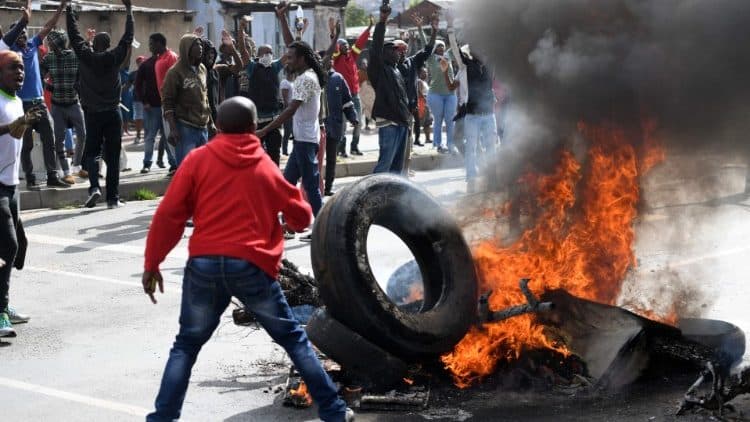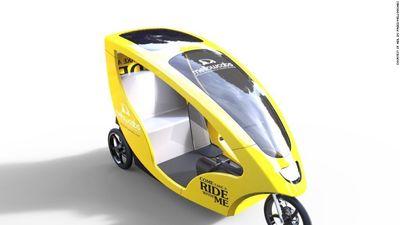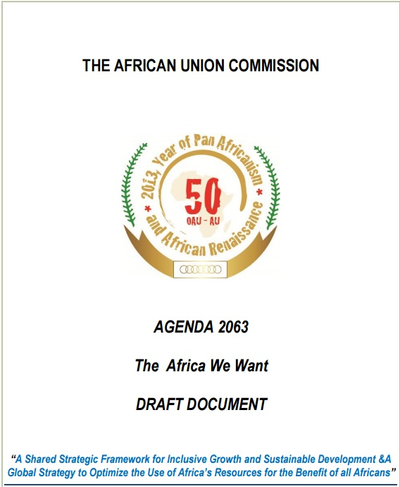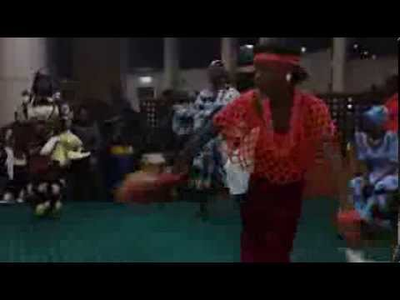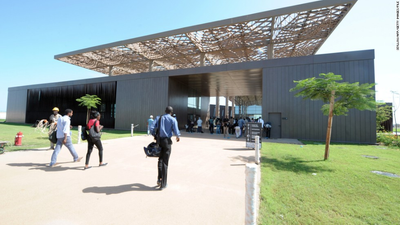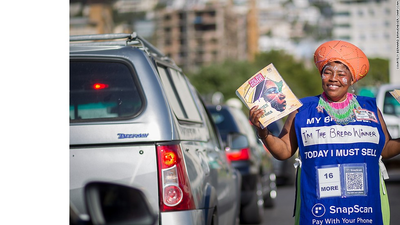Xenophobia in plain words means “fear of foreign” people, place or things. In the case of South Africa, it is the fear of black foreigners. Though phobia refers to fear in general, this type of fear is very much different from claustrophobia (fear of being in a confined space) or aerophobia (fear of flying). It relates more to homophobia or racism and exists in hatred. Xenophobia springs up from perceptions about a group of people and relates to a people’s fear of losing their culture, identity and economic sustenance.
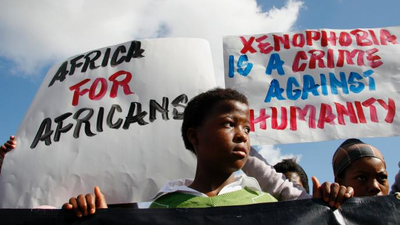
According to UNESCO, the difference between racism and xenophobia is that racism is based on physical appearances and xenophobia on behaviour.
South Africa, Africa’s most industrialised country is made up of a population of just over 58 million people out of which about 3.8 million are foreigners. Over 70% of these foreigners come from African neighbouring countries including Lesotho, Mozambique, Zimbabwe, Namibia, Nigeria and Swaziland. The rest 30% are people from UK, India and other Asian countries like Bangladesh.
Xenophobic attacks in South Africa
There has been a long history of xenophobic attacks in South Africa by black Africans who accuse other African countries, as well as Asian countries of stealing their jobs. Though immigrants in South Africa faced discrimination in 1984, study has shown that these attacks, xenophobic attacks, have only increased since 1994. The xenophobic mentality of South Africans since and before its independence has been fanned out by leaders of both the ruling party and the opposition party.
Though there are traces and elements of xenophobic attacks in South Africa every year, these attacks have been reported to be at its peak in 2008 and 2015 (BBC). In 2008, about 60 people were killed and over 50,000 forced out of the country. Outbreaks of violence in 2015 in Durban and Johannesburg led to the deployment of the army to curtail any unrest and in March of the same year, the government launched an initiative to raise public awareness and improve the security of victim of discrimination.
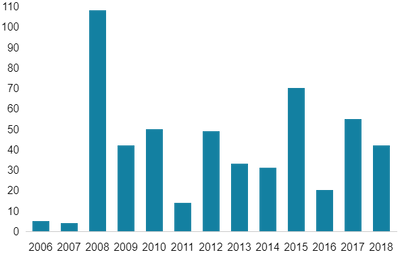
This new set of attacks broke out on Sunday 1st September 2019 in the suburbs of Johannesburg and has spread, causing the destruction of over 50 businesses owned by Africans mostly from Nigeria and Somalia, and Bangladesh.
Note: South Africa experienced severe economic conditions an had an unemployment rate of over 27% last year.
Why these attacks?
South Africans have differing reasons for carrying out xenophobic attacks. The most common of these reasons is the struggle and contestation for resources which are considered to be scarce and insufficient for the people of the land. This is as a result of the economic instability that has become an identity of African countries. The locals of South Africa believe that migrants in their country have taken up the resources- jobs, wages, businesses, education and women- that should be apportioned to them. For some, these migrants have increased the spread of diseases such as HIV/AIDS in South Africa. A few perceive that these foreigners are criminals and should therefore not be allowed to live or benefit from protection in their country. some others just detest the presence of foreigners in their villages and communities.
These ideas which South Africans deem justifiable for xenophobic attacks have been fanned out by their political leaders’ propagandas, corruption, issues of governance and the unanticipated result of an aggressive nation-building project following apartheid.
However, as in most African countries, the root cause of these problems could be traced to relative deprivation, poverty, bad governance, corruption, unemployment which have been buried deep over a long period of time. The problem with this is that, just like a strike of match could burn down a forest, a small rift in an unknown village could very quickly escalate into a national and then regional problem. We should therefore be careful of ripple effects that will come out of this violence as is already seen in Nigeria. Fighting ourselves helps no one.
What South Africa has forgotten is how other African countries whom they have termed criminals and thieves helped them in their struggle for independence and fight against apartheid.
Following the attacks on Tuesday, President Cyril Ramaphosa on twitter shared his condemnation for the attacks, terming it “completely unacceptable” and “something that is completely against the ethos that we as South Africans espouse”. Julius Malema, leader of Economic Freedom Fighters, also condemning these attacks, said “Whether you are from South Africa, whether you are from Zimbabwe, whether you are from Nigeria – this is your home”. He further described the actions as self-hate; “When it is a white person in South Africa undocumented it’s called an investor, including Indians and Chinese… Africa we are one, Nigerians are our brothers. Let’s be tolerant.”
What to do
What shouldn’t be done is destroy properties or businesses owned by South Africans in Nigeria or anywhere. Why? Because these establishments have partly solved the problem of unemployment in countries. Using Nigeria as an example, Shoprite, MTN and DSTV have employment thousands of Nigerians and have reduced the number of unemployed people in the country. Shoprite gets some of its products from Nigerian farmers which also helps the agriculture sector of the country. Destroying these companies will only further sink the economy of Nigeria. A little further, destroying Nigeria owned properties in Nigeria is also not a solution, though this is as a result of pent up frustration of Nigerians that see that nowhere is safe for them.
Several members of the Nigerian government have made comments on these attacks. Foreign Minister Geoffrey Onyeama tweeted “Enough is enough. We will take definitive measure”. Though these measures may unravel in days, weeks or months to come, what is needed are permanent measures to ensure that Nigerians and other nationals are not victims of such again.
Top of the list is to make Nigeria a safe place for its citizens. If home is safe and stable, it will drastically reduce the number of Nigerians seeking for refuge elsewhere. Making home safe includes creation of jobs for citizens, better education system, stable security and the value for lives of the citizens. All of these and more is needed to change the perception of Nigeria and its citizens, and make the Nation work effectively.
African countries need to work together to caution South Africa to stop this madness.
For more on this:
